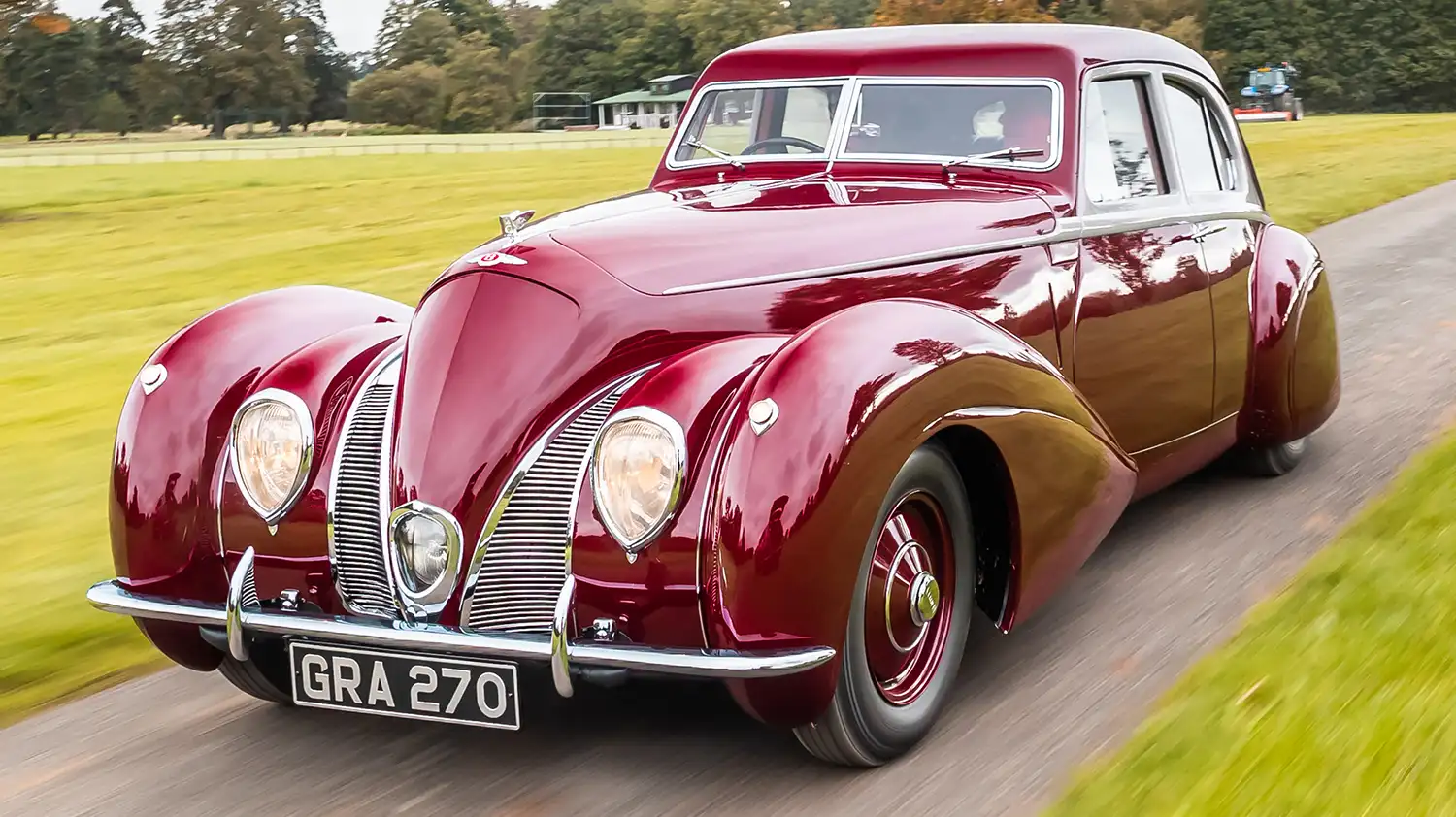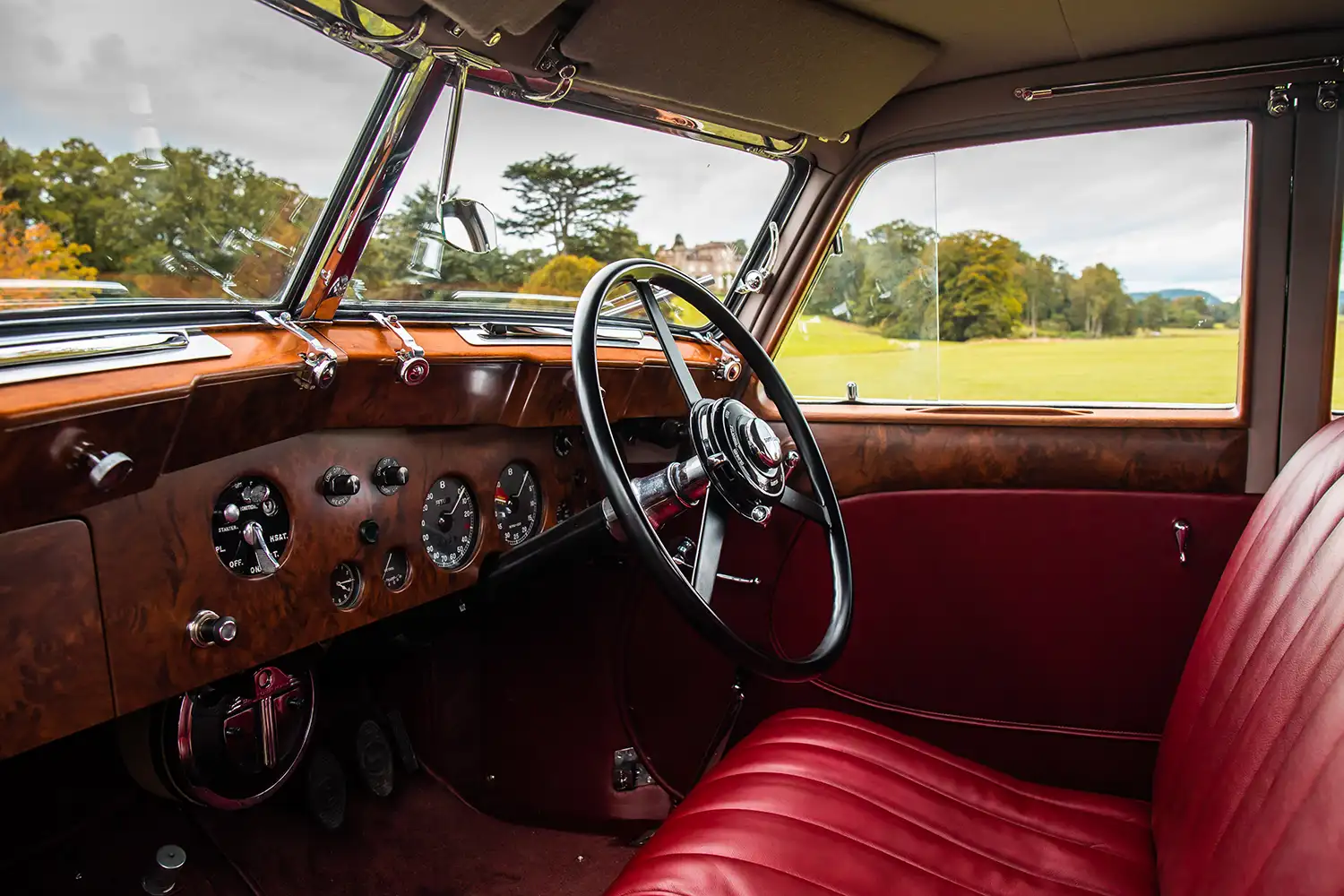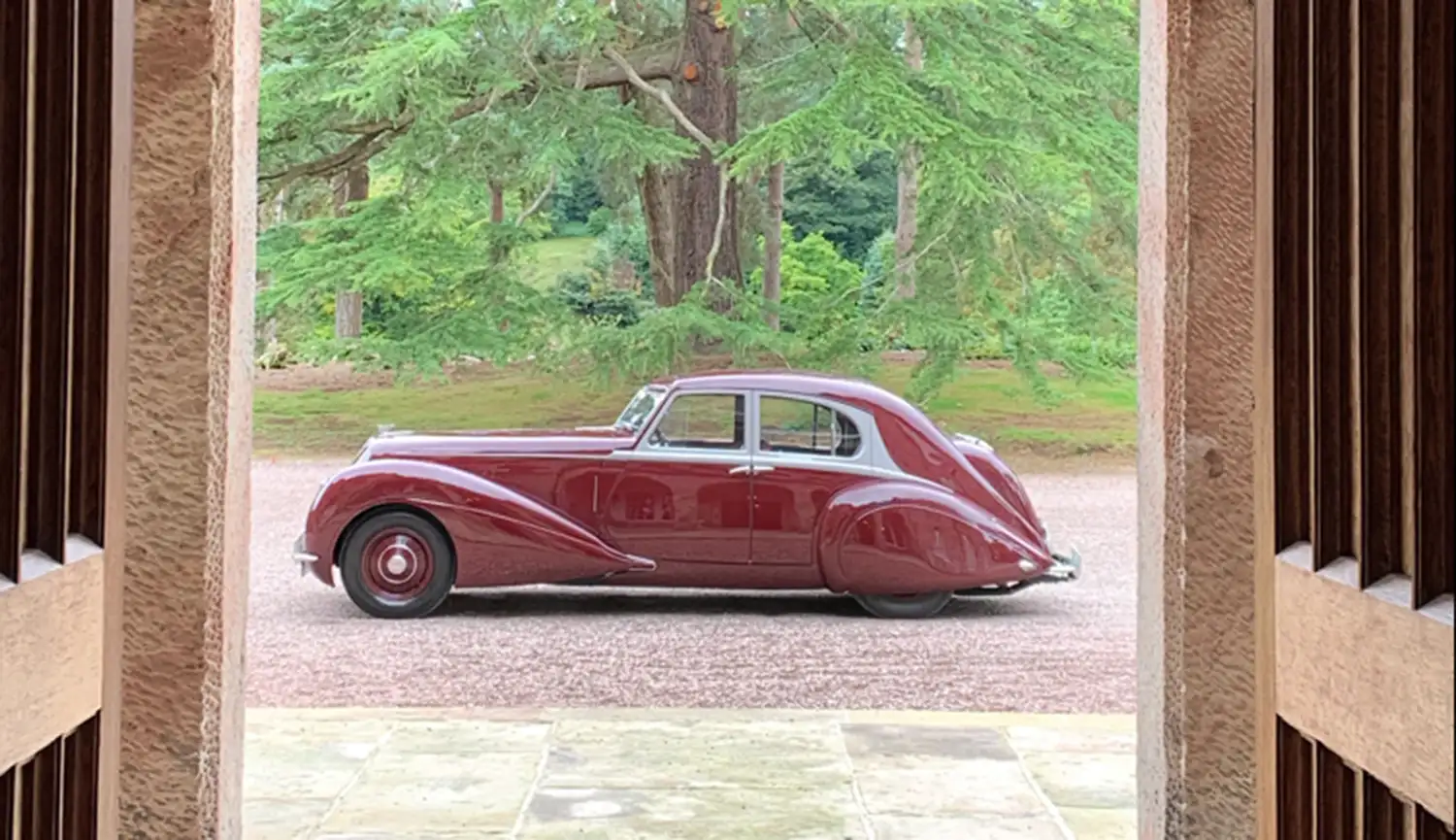
The ‘Embiricos’ Bentley 4¼ Litre of 1938 inspired Bentley to create an aerodynamic Mark V called the Corniche. Although the original body was destroyed in the war, it was the precursor to the iconic R Type Continental of 1952. To celebrate Bentley’s 2019 centenary, the Corniche was recreated using a combination of original Mark V parts and the specialist fabrication skills of Mulliner, Bentley’s in-house bespoke and coachbuilding division.
Exploring aerodynamics
In the late 1930s the ‘Embiricos’ Bentley, designed by Georges Paulin and bodied by Pourtout, had shown the value of aerodynamics for fast road and track driving. Its success inspired Bentley to commission a one-off 4-door Mark V in a similar ‘streamlined’ style. A Mark V prototype chassis (14BV) was sent to France, where Bentley designer Ivan Evernden worked jointly with Paulin at the Paris workshops of Carosserie Vanvooren. The car, named ‘Corniche’, was intended to be shown at the 1939 London Motor Show alongside other coachbuilders’ offerings for the Mark V chassis.
A troubled history
In 1939 a prototype lapped Brooklands at 109 mph (175 km/h), and a full test programme began. Unfortunately, in August 1939 test driver Percy Rose crashed the car in France, damaging the bodywork. With the outbreak of war in September 1939 the London Motor Show was cancelled, halting work on all versions of the Mark V. Meanwhile the repaired Corniche body had been taken to Dieppe for shipping back to the UK but was destroyed when the docks were bombed.

The missing link recreated
Though it never saw production, the Corniche is significant model in Bentley history, linking the pre-war Embiricos 4¼ litre with the R Type Continental of 1952. A project to recreate the Corniche was started by historian Ken Lea and volunteers from the W.O. Bentley Memorial Foundation, but it was brought in-house in February 2018 and completed in time for the centenary celebrations. Using original technical drawings, the one-off Corniche was rebuilt by the Mulliner team in Crewe using Mark V mechanical components and an all-new body and interior, identical in every detail to the original. It is finished in period-correct Imperial Maroon with a side flash of Heather Grey, while the interior was trimmed in typical Vanvooren style using the correct Connolly Vaumol hide and West of England cloth.
| Date Produced | 1938-1939 |
| Number Built | 4 chassis; 1 complete car (destroyed 1939); one-off recreation 2019 |
| Body | Original saloon body by Van Vooren, recreated by Mulliner, Bentley’s in-house coachbuilding division in 2019. 4-doors, 5-seats; weight approx. 1,727 kg |
| Engine | 6-cylinder, 4257 cc. Pushrod overhead 2-valves; gear-driven camshaft; cast iron cylinder head, block, aluminium crankcase; 7-bearing crankshaft |
| Power | 142 bhp @ 3,800 rpm |
| Transmission | Single dry plate 10 in (25.4 cm) clutch; 4–speed gearbox, synchromesh 3 and 4 |
| Chassis | Ladder-type steel frame with cruciform bracing; independent front suspension by coil springs, wishbones; anti-roll bar; live rear axle with semi-elliptic leaf springs; Armstrong hydraulic lever arm dampers front; R-R hydraulic with ride control rear; Girling mechanical servo brakes |
| Dimensions | Wheelbase 3,149 mm; track 1,429 mm front, 1,473 mm rear; length 4,851 mm); width 1,753 mm) |
| Performance | Maximum speed 110 mph (176 km/h) |
